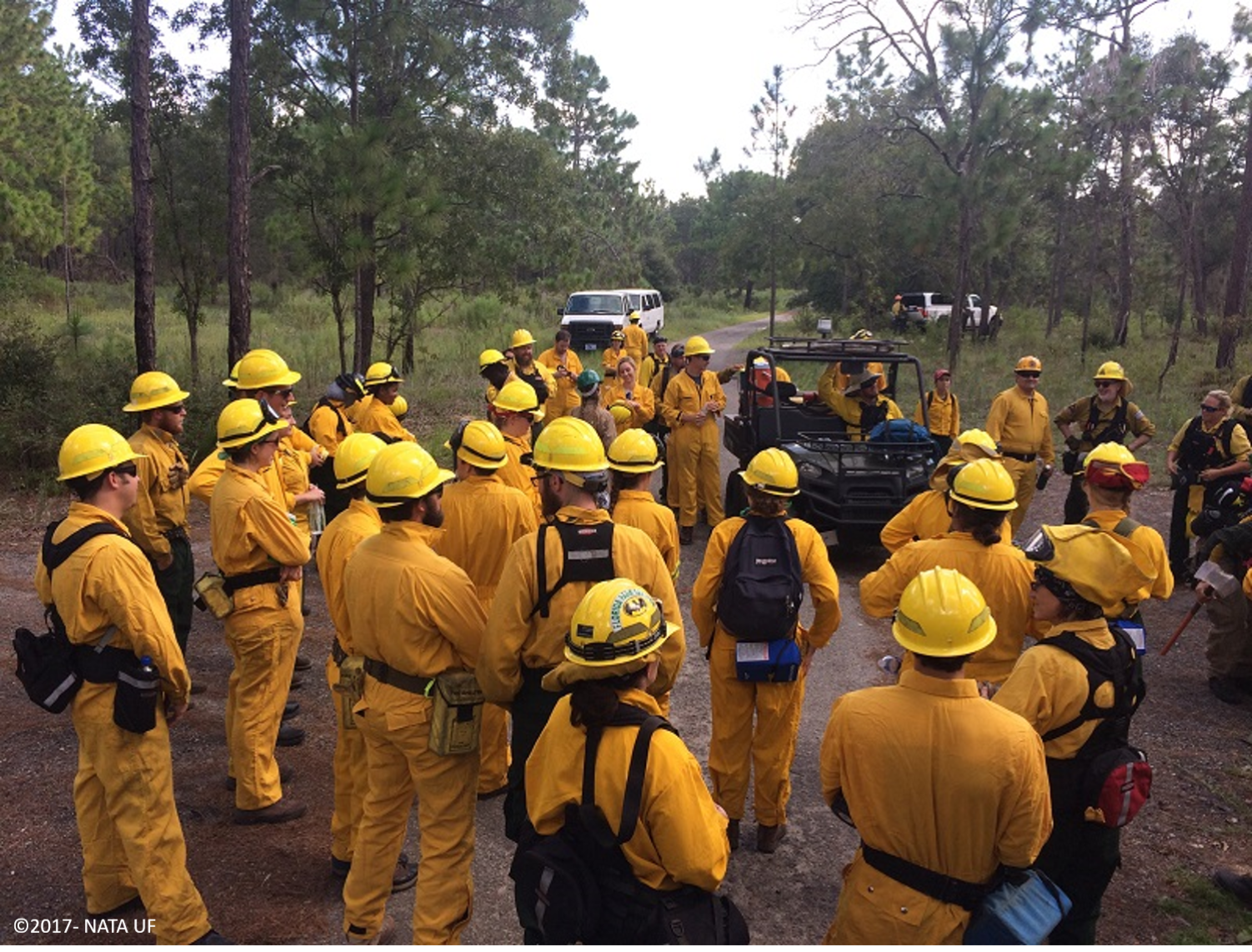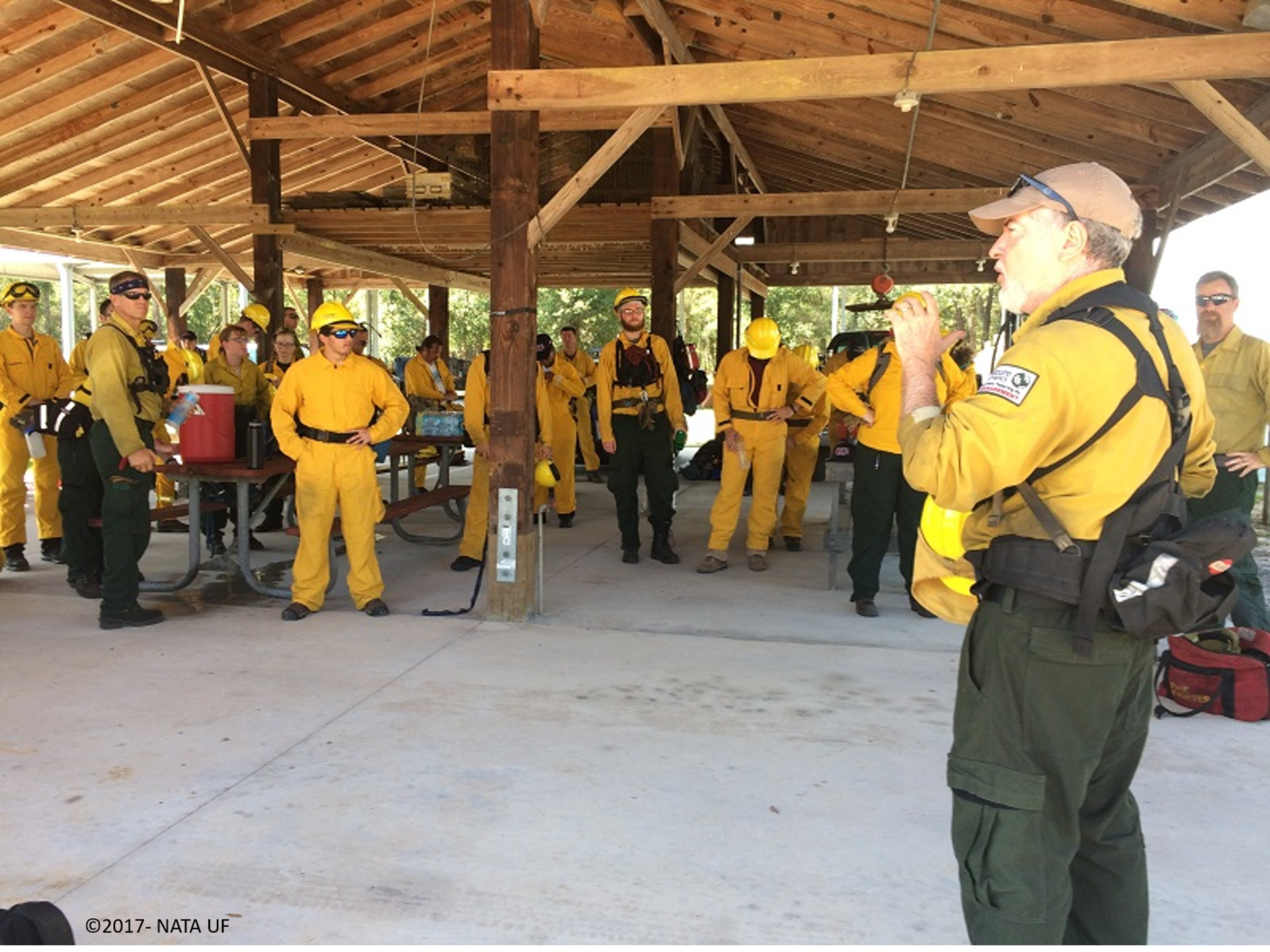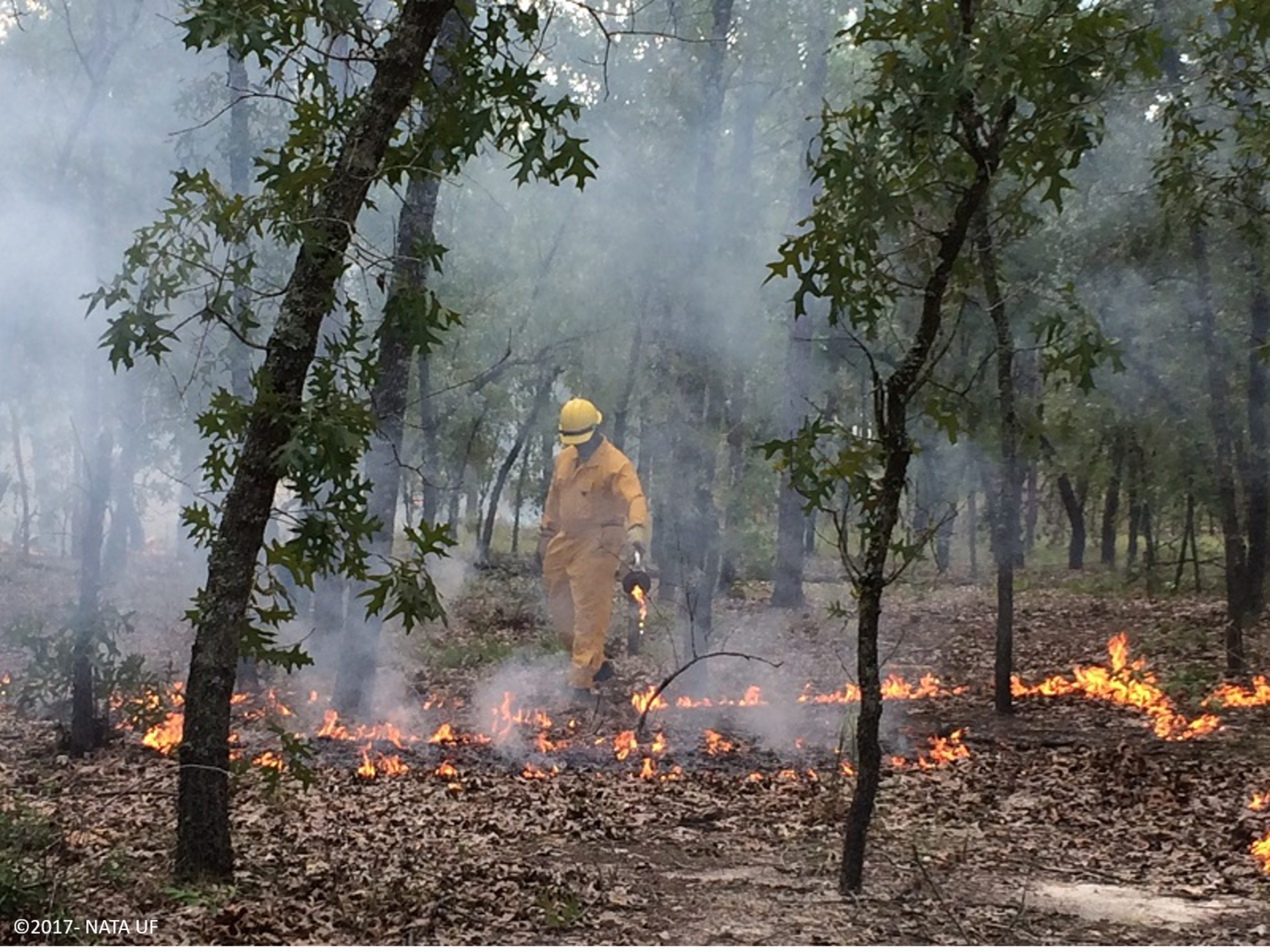
NEXT COURSE:
Online coursework: October 7 - 25 (32 hours, on your own, with assignment deadlines)
Live Field Day: (choose 1 location):
- Archbold Biological Station, Venus, FL (October 25)
- Tall Timbers Research Station, Tallahassee, FL (October 29)
- Wekiwa Springs State Park, Apopka, FL (November 1)
- Blue Springs State Park, Orange City, FL (November 5)
- Ordway-Swisher Biological Station, Melrose, FL (November 5)
- REGULAR registration will open September 10, at 10:00 a.m.
- EARLY registration is available for previous NATA graduates*. You must email the Training Coordinator by September 1 to request an early registration code; code will expire on September 9.
- Registration will close when capacity is reached or by September 20th; we expect course will fill to capacity quickly.
Join our listserv to receive updates
Course Description:
S-130/190 is designed to provide entry-level wildland firefighter skills, and is often required for participation in prescribed burning activities (Firefighter Type II). Participants will receive federally-recognized National Wildfire Coordinating Group (NWCG) certificates for S-130, S-190, and L-180.
This course satisfies the fire-requirement for NATA's Certificate in Natural Areas Management (CNAM).
Course topics include:
- Proper tactics to extinguish fire with or without the use of water
- Why lookouts, communications, escape routes, and safety zones are important
- The primary factors affecting the start and spread of wildfire
- How to recognize potentially hazardous situations
- Environmental factors of fuel, weather, and topography that affect the spread of wildland fire
Presented in a hybrid format (both the online and in-person field day is required)
Online training:
Prior to the in-person field day, participants MUST complete 32 hours of online coursework across 3-weeks (on your own, with weekly assignment deadlines); reliable internet connection and computer is required.
All registrants must complete the online training provided by NATA (we do NOT accept participants for the Field Day only). Draft of S130/S180/L180 online assignment checklist and agenda
In-person field day:
Participants must attend an in-person field day at a location they choose when registering (capacity is limited at each site); no transfers allowed.
- Field locations and dates are above
What to bring to the field training:
- 6 inch or higher leather boots
- Leather gloves
- Cotton/natural fiber clothing
- Lunch and water bottle
- PPE (optional, but encouraged and required if you want to participate in live fire: helmet, Nomex, eye protection)
Registration Fee:
$190 per person
- You must pay with a CREDIT CARD online at the time of registration on the Eventbrite website. The confirmation email from Eventbrite is your receipt.
- NO REFUNDS will be offered after registration closes.
- NO CREDITS will be issued for those who do not complete the course.
- Eventbrite processing fees are NONREFUNDABLE, meaning that if you need a refund, you will receive a partial refund, minus the Eventbrite processing fees. For more information, visit Eventbrite's policy .
College Students: There will be a limited # of discounts available for current full-time college students in Florida for $150 (proof of enrollment is required). You must email the NATA training coordinator by September 1 to request a special registration code; code will expire on September 9.
*EARLY registration is available to any person who has graduated from one or more of the NATA core certificate courses. You must email the NATA training coordinator by September 1 to request a special registration code; code will expire on September 9.
For more information, contact:
Training Coordinator
Natural Areas Training Academy










